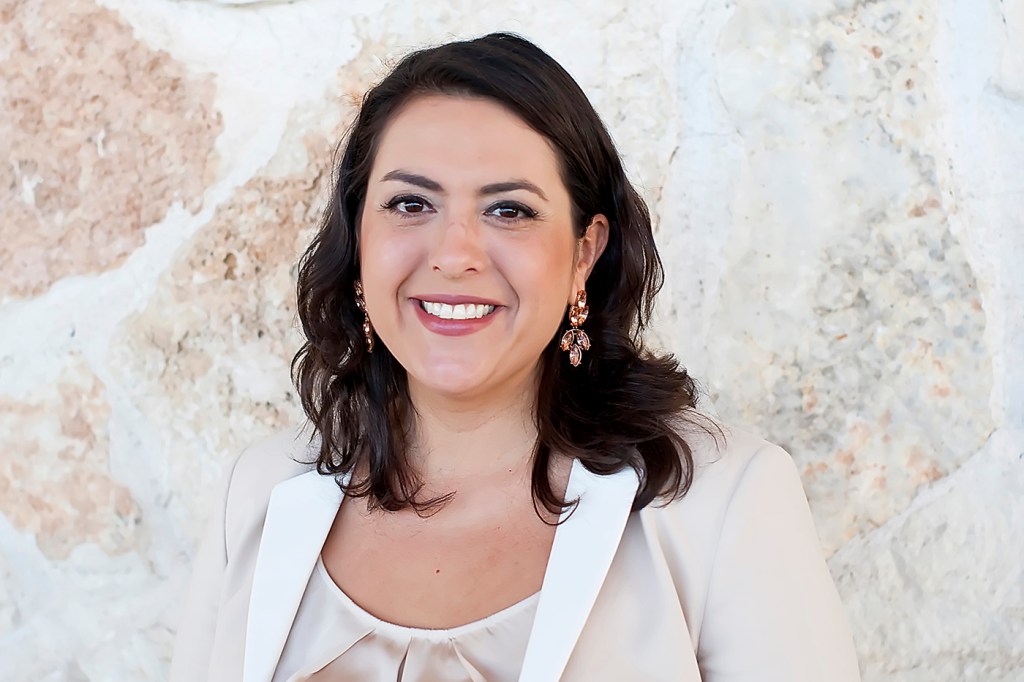Northeastern appoints inaugural executive director of the Mills Institute

Nicole M. Guidotti-Hernández, a renowned feminist scholar and higher education leader with a commitment to social justice, has been named the inaugural executive director of the Mills Institute at Northeastern University’s Oakland campus.
In her new role, Guidotti-Hernández will lead the institute to support transformative learning, advocacy and research. She will also focus on career development for women, gender non-binary individuals and historically marginalized communities.
In addition, she will build meaningful relationships with the Oakland and Bay Area communities that surround Northeastern’s campus on behalf of the university.
“The Mills Institute will carry the legacy of Mills College forward for generations to come,” said Joseph E. Aoun, president of Northeastern University. “Amplified by our global university system, the work of the Institute will be transformative and extend around the world.
“Nicole is an entrepreneurial leader and a champion for communities that need greater opportunities to succeed. Under her leadership, the Mills Institute’s work will propel change and create solutions around social justice, and the rights of women, non-binary and marginalized communities.”
Born and raised in California’s Salinas Valley about two hours south of San Francisco, Guidotti-Hernández comes to the Mills Institute from Emory University in Atlanta, where she was a professor of English, history, Hispanic, and women’s, gender and sexuality studies. There, she helped overhaul course offerings to better integrate Latinx, Asian American, American Indian and African American content.
Previously, she was an associate professor of gender studies at the University of Arizona, and was the inaugural chair of the Department of Mexican American and Latina/o Studies at the University of Texas at Austin.
Guidotti-Hernández earned a bachelor’s degree in literature from the University of California Santa Cruz, and master’s and doctoral degrees in English from Cornell University.
Her first day at the Mills Institute will be Dec. 1.
“I’m just super excited,” Guidotti-Hernández says. “It couldn’t be a better fit for me.”
Launched with $30 million in funding, the Mills Institute is charged with preserving and advancing the legacy of Mills College, which merged with Northeastern in July.
The institute’s programs and partnerships will support transformative learning, advocacy and research, with a focus on career development for women, gender nonbinary individuals and communities that historically have been marginalized because of race or ethnicity.
“It is great to have Nicole join Northeastern in this pivotal role,” said Mary Ludden, senior vice president for global network and strategic initiatives. “The Mills Institute is poised to become a hub for talent and innovation that will bring about critical change for remarkable, yet often overlooked communities.
“Under Nicole’s leadership, the Institute will embrace the urgency around solving issues that are both local and universal, such as social and racial justice that impact communities across race, gender and socioeconomic boundaries.”
Guidotti-Hernández has lectured all over the world—from Massachusetts to Hawaii, Puerto Rico, Canada, Mexico and Spain. And her book, “Unspeakable Violence: Remapping U.S. and Mexican National Imaginaries,” won a Modern Language Association book prize.
She has long been impressed with Northeastern’s forward-thinking, global approach under Aoun’s leadership. Northeastern operates 13 campuses in three countries and is the only university in the United States with comprehensive campuses on both coasts.
“One of the things that I really like about Northeastern is that they’re constantly trying new things. And I tend to work that way,” Guidotti-Hernández says.
At the Mills Institute, Guidotti-Hernández plans to leverage Northeastern’s global experiential brand to expand Mills’ reach beyond ways it could as an independent college. Promoting BIPOC (Black, Indigenous and people of color) and queer leadership will be a priority of the institute, she says. So will teaching excellence and community outreach.
She also wants middle and high school students from marginalized communities in the Bay Area and South Bay to think of Mills College at Northeastern as a place to pursue an undergraduate education. The Mills Institute will be instrumental in working with these communities, she says.
Guidotti-Hernández welcomes the challenge of taking on new approaches, she says.
“How can we take a campus with vibrant, intelligent faculty who really care about social transformation and connect them to Northeastern’s global university system?” she asks.
“My vision is to have a tremendous impact both locally and globally,” she says. “We will find our place in the community. It has always been a dream to work in a setting like this one, where the mission is ripe for opportunity. I feel really lucky—really lucky.”
For media inquiries, please contact media@northeastern.edu.






